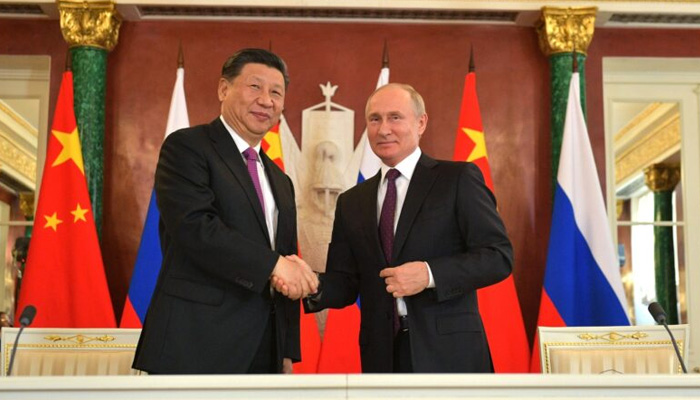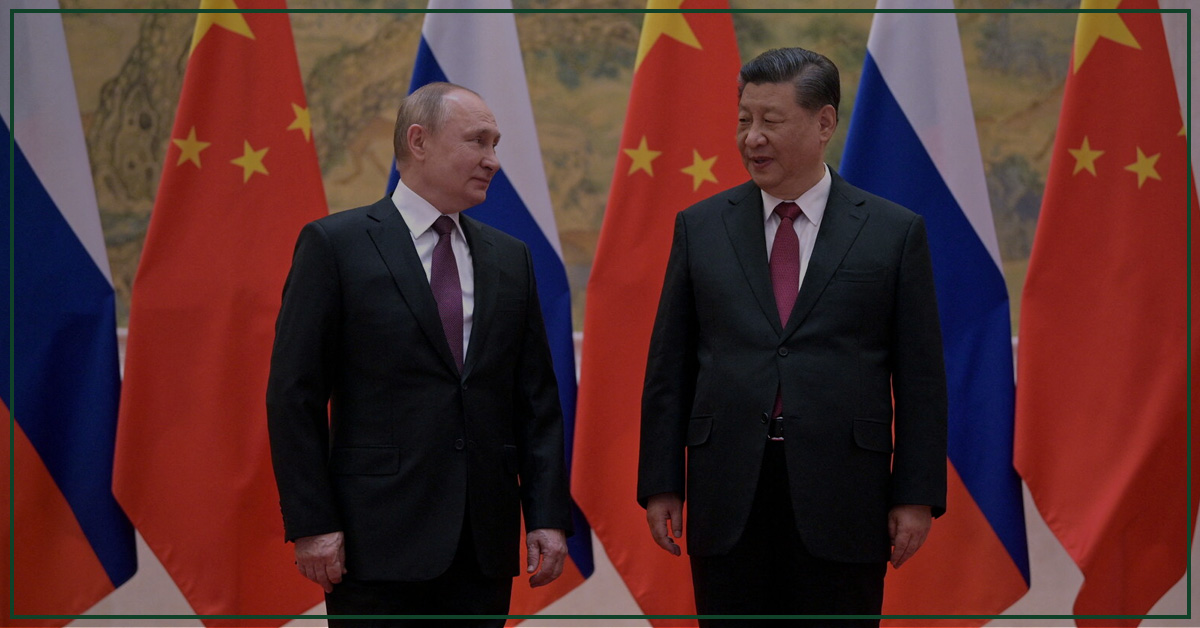The United States will try to convince not to supply arms to Russia at a key meeting in Rome which the White House considers basically significant for the conflict in Ukraine as well as for the fate of the worldwide overall influence.
Jake Sullivan, the US national security adviser, will meet his Chinese counter partner, Yang Jiechi, in the Italian capital in the midst of reports that Russia has requested China for weapons to reinforce its vacillating attack from Ukraine.
China on Monday responded furiously to the reports in numerous news sources referring to US authorities. Its foreign ministry representative, Zhao Lijian, said the US was spreading “malicious disinformation”, with “sinister intentions”, as indicated by interpretations by journalists in the room.
“China’s position on the Ukraine issue is consistent and clear, and China has been playing a constructive role in promoting peace talks,” Zhao said. “It is imperative that all parties exercise restraint and cool down tensions, not add fuel to the fire.”
Sullivan will bring up in the Rome meeting that the US advised China on Vladimir Putin’s aims a long time in front of the intrusion, however, that the Chinese authority overlooked those alerts, erroneously accepting that Putin was feigning to acquire influence, as per sources acquainted with plans for the Rome meeting.
Sullivan will likewise contend that assuming China supplies weapons to Russia will be a further, huge mistake of history, and a defining moment in worldwide legislative issues. The Biden White House is concerned to forestall the Ukraine war further establishing a division of the world into two restricting alliances.
Sullivan and Yang will likewise circle back to arrangements Joe Biden and Xi Jinping made in a virtual culmination in November, to further develop emergency interchanges between the two atomic powers.
“We also are watching closely to see the extent to which China actually does provide any form of support – material support or economic support – to Russia,” said Sullivan. “It is a concern of ours. And we have communicated to Beijing that we will not stand by and allow any country to compensate Russia for its losses from the economic sanctions.”

Sullivan said the US had clarified to Beijing that there would “absolutely be consequences” for “large-scale” endeavours to assist Russia with evading sanctions.
Russia has likewise asked China for financial assistance as it faces serious western authorizations, however, Sullivan told the US was “communicating directly, privately to Beijing that there will absolutely be consequences” assuming China assists Russia with sidestepping sanctions.
On Sunday it was reported about the Russian solicitation for weapons, in the midst of claims from US authorities that the Russian military was running really low on particular sorts of weapons and had been looking for weapons from Beijing for quite a while.
The representative for the Chinese embassy in Washington, Liu Pengyu, stated he had “never heard” of the Russian arms demands.
“The current situation in Ukraine is indeed disconcerting,” he further stated. “The high priority now is to prevent the tense situation from escalating or even getting out of control.”
“It feels like the US-China relationship is moving toward a pretty significant fork,” Ryan Hass, previous China chief at the US national security council.” Further said, “if China materially contributes to Russia’s war machine in Ukraine through the provision of materiel or significant backfilling, then China’s actions will accelerate the cleavage of the world in direction of adversarial blocs.”
“It’s wise for the US to speak directly and privately with the Chinese at an authoritative level now to clarify the lasting strategic ramifications of China’s decisions at this moment.”
China has up to this point not condemned the Russian intrusion or the mass killings of citizens in bombardments of Ukrainian towns and has refrained on goals lamenting the assault at the UN security council and general assembly.
Xi likewise communicated worry about the effect of sanctions on the worldwide economy, and the impediment that western sanctions are forcing on China’s capacity to purchase Russian oil.
Hass, presently a senior individual at the Brookings Institution, said he didn’t anticipate seeing any quick forward leaps at the Rome meeting.
“The results may take weeks or longer to come into focus,” he said. “Neither side is likely to provide other with satisfaction. Outcomes may need to be measured in degrees, not black-white binaries.”
Wen-ti Sung, a political specialist at the Australian National University, said he accepted the opportunity that China would supply weapons to Russia was “small”. He also stated, “Doing it would be both too late to help the distant war in Ukraine, and would look very bad for Beijing. It’s not worth it.”
Anyway, Sung said the US’s public circulating of Russia’s solicitations – which were still of genuine concern – additionally permitted it to pressure Beijing on its civilian trade with Russia, which could incorporate non-military parts and parts that could be utilized in weapons creation.
“By flagging the possibility of Chinese providing military aid, Washington actually is laying down talking points to nudge China into limiting ‘civilian trading relationship’ with Russia and semi-joining (however partially) the international economic sanctions against Russia,” Sung said.
“If it works, it will reduce China-Russia trade and further weaken Russia; if it doesn’t, it will help shore up the ‘China is Russia’s enabler’ image, and claim moral high ground for the US vis-a-vis China.”
Prof. Steve Tsang, director of the SOAS China Institute, said Xi would have zero desire to endanger China’s economy during a year when his main concern is getting a third term. He also said, “China under Xi will give whatever support it can to help Putin but it will not allow itself to suffer from secondary sanctions as it does so, despite the [agreement] of ‘rock solid’ support and a friendship without limits.”





